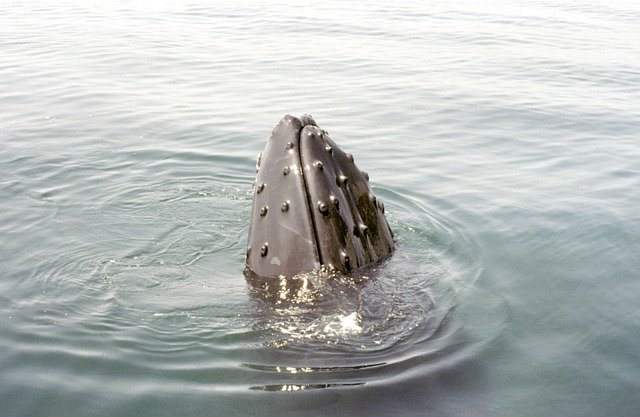The Untapped Potential of Blue Economy Investments
In a world where traditional investment avenues are becoming increasingly saturated, savvy investors are turning their attention to the vast, unexplored potential of the blue economy. This burgeoning sector, encompassing all economic activities related to oceans, seas, and coastal areas, offers a unique blend of financial opportunity and environmental stewardship. As global awareness of marine conservation grows, so does the allure of blue economy investments, presenting a new frontier for those seeking to diversify their portfolios while contributing to sustainable development.

Understanding the Blue Economy Landscape
The blue economy encompasses a wide range of sectors that depend on or impact marine and coastal resources. This includes traditional maritime industries such as fishing, shipping, and offshore oil and gas, as well as emerging sectors like marine renewable energy, blue biotechnology, and sustainable coastal tourism. The United Nations estimates that the blue economy contributes approximately $1.5 trillion annually to the global economy and supports over 31 million jobs.
What sets the blue economy apart is its focus on sustainable use of ocean resources for economic growth, improved livelihoods, and jobs, while preserving the health of marine ecosystems. This approach aligns with several United Nations Sustainable Development Goals, making it an attractive option for investors seeking both financial returns and positive environmental impact.
The Investment Opportunity Spectrum
The blue economy offers a diverse array of investment opportunities across various sectors:
Sustainable Aquaculture: With wild fish stocks declining, sustainable aquaculture presents a promising investment avenue. Companies developing innovative, eco-friendly fish farming techniques are attracting significant investor interest.
Marine Biotechnology: This sector focuses on harnessing marine organisms for various applications, from pharmaceuticals to cosmetics. The global marine biotechnology market is projected to reach $6.4 billion by 2025.
Renewable Ocean Energy: Offshore wind farms, tidal energy, and wave power technologies are gaining traction as countries seek to diversify their energy sources and reduce carbon emissions.
Sustainable Coastal Tourism: Eco-friendly resorts, marine protected areas, and sustainable coastal development projects offer opportunities for both real estate and hospitality investments.
Ocean Cleanup Technologies: Companies developing innovative solutions for plastic waste removal and ocean pollution mitigation are attracting attention from environmentally conscious investors.
Navigating the Risks and Challenges
While the blue economy presents exciting opportunities, it’s not without its challenges. Investors must navigate a complex landscape of regulatory frameworks, environmental considerations, and technological uncertainties.
Regulatory Complexity: Marine activities often span multiple jurisdictions, requiring investors to navigate complex and sometimes conflicting regulatory environments.
Environmental Risks: Climate change, ocean acidification, and biodiversity loss pose significant risks to marine-based industries. Investors must carefully assess the resilience of their investments to these environmental challenges.
Technological Uncertainties: Many blue economy sectors rely on emerging technologies that may face scalability issues or unforeseen technical challenges.
Long-Term Nature of Investments: Many blue economy projects, particularly in infrastructure and renewable energy, require substantial upfront capital and have long payback periods.
Strategies for Successful Blue Economy Investing
To navigate the blue waters of this emerging sector, investors should consider the following strategies:
Diversification: Spread investments across different blue economy sectors to mitigate risks associated with specific industries or technologies.
Due Diligence: Thoroughly assess the environmental impact and sustainability credentials of potential investments. Look for companies with robust ESG (Environmental, Social, and Governance) practices.
Partnerships and Collaboration: Seek opportunities to collaborate with governments, NGOs, and research institutions to access expertise and mitigate risks.
Long-Term Perspective: Adopt a patient capital approach, recognizing that many blue economy investments may take time to yield returns.
Technology Assessment: Carefully evaluate the technological readiness and scalability of blue economy innovations before investing.
The Role of Policy and Global Initiatives
The growth of the blue economy is heavily influenced by global policies and initiatives aimed at promoting sustainable ocean management. The UN’s Decade of Ocean Science for Sustainable Development (2021-2030) and various regional blue economy strategies are creating a supportive environment for investments in this sector.
Investors should stay informed about these policy developments, as they can create new opportunities and shape the regulatory landscape. For example, the European Union’s Blue Growth Strategy aims to support sustainable growth in the marine and maritime sectors, potentially opening up new investment avenues in areas like blue energy and aquaculture.
Key Considerations for Blue Economy Investors
-
Assess the scalability and market potential of blue economy technologies
-
Evaluate the regulatory landscape in target regions
-
Consider the long-term environmental impact of investments
-
Look for companies with strong partnerships across academia, industry, and government
-
Stay informed about global ocean conservation initiatives and policies
-
Assess the resilience of investments to climate change and other environmental risks
-
Consider the potential for positive impact alongside financial returns
The Future Wave of Blue Economy Investments
As global attention on ocean conservation and sustainable resource management intensifies, the blue economy is poised for significant growth. Investors who position themselves early in this emerging sector stand to benefit from both financial returns and the satisfaction of contributing to a more sustainable future for our oceans.
The blue economy represents more than just a new investment frontier; it’s a paradigm shift in how we view and value our marine resources. By aligning financial interests with environmental stewardship, blue economy investments offer a unique opportunity to ride the wave of sustainable development while potentially reaping substantial rewards. As we look to the horizon, it’s clear that the blue economy will play an increasingly crucial role in shaping our global economic and environmental landscape, making it a sector that forward-thinking investors cannot afford to ignore.






